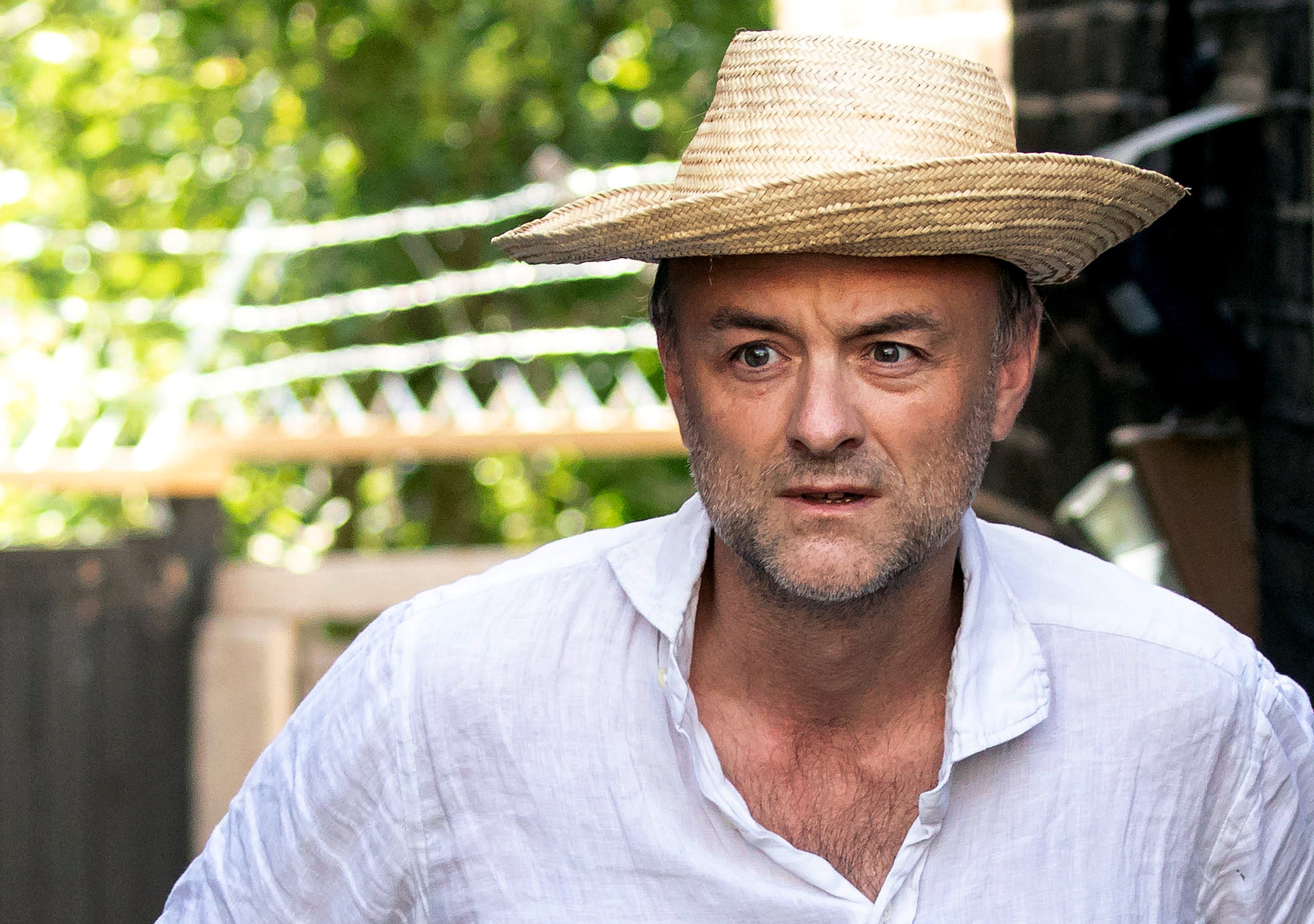Dominic Cummings is carrying the can for Boris Johnson’s mistakes – but we may not have seen the last of him
Cummings would cross a motorway for a fight: his macho politics and confrontational approach were unsuited to governing, writes Andrew Grice


At the start of a meeting with a group of Conservative MPs, Dominic Cummings said he did not know their names. They thought it was a wind-up. It wasn’t. The backbenchers thought it rude, and typical of his disdain towards them.
Boris Johnson’s most influential adviser was not bothered about traditions like showing MPs respect; he revelled in ripping them up. But this incident shows how he made enemies for the sake of it– ultimately, too many for Cummings to remain in Downing Street.
Johnson begged Cummings to join his team when he became prime minister. He demanded free rein and total power: he would work directly to Johnson, not to a chief of staff. He could have become the chief of staff but preferred power without responsibility. It came back to bite Cummings this week, leading to an earlier departure than he had expected, only weeks after parking his tanks on the civil service’s lawn by moving his office from No 10 to the Cabinet Office at 70 Whitehall.
When Johnson withdrew his offer to make Cummings’s close ally Lee Cain chief of staff, the writing was on the wall for the Vote Leave faction. Johnson knew its aggressive, divisive approach had become a liability, and was damaging him. The group seemed to be more loyal to itself than the prime minister. It is suspected of leaking the current lockdown in England to the media to bounce Johnson into it before he could change his mind.
One colleague told me that Cummings sees himself as “the Messiah”. Others speak of “Dom’s disciples”: Channel 4 News calculated that seven of Vote Leave’s 14 most senior figures currently work in No 10, while another two did previously, and three give advice from the outside. Another nine former Vote Leave staffers work in Whitehall.
Why did Johnson expend so much political capital to save Cummings’s skin after his controversial trip to Durham during the first lockdown? Without Cummings, Johnson might well have been a “former London mayor” and one of our many ex-future prime ministers. Cummings was the architect of Vote Leave’s 2016 referendum victory. He almost single-handedly persuaded Johnson to go for a general election last year before Brexit was “done”. Cummings told me the opposition parties would eventually crack and allow an election; he was right. Johnson won a huge majority of 80.
But Tory MPs have been gunning for Cummings since his disastrous Durham trip blew a hole in the government’s coronavirus strategy. Recently, Johnson’s relations with his backbenchers have become severely strained. He couldn't ignore it; they have the power to oust him, and the fall of Margaret Thatcher, Iain Duncan Smith and Theresa May showed they are prepared to use it. Cummings’s scalp will buy Johnson some credit with his MPs at a critical moment. Eventually, even he was expendable.
What does the end of the Cummings era mean? Without an inner circle dominated by Vote Leave’s street-fighters, Johnson will revert to the liberal Conservative we saw as mayor of London. Can he pull it off? Johnson is a chameleon, and his lack of a strong set of core beliefs means he is flexible enough to change. But it’s more likely to be a change of style and tone than policy.
He will talk up climate change, starting in a speech next week, though to little enthusiasm in his own party. Remarkably, four in 10 grassroots Tory members believe global warming is not driven by human activity or not happening at all. Johnson will try to rebuild damaged bridges with the devolved administrations in Edinburgh, Cardiff and Belfast as well as with his MPs. Expect a truce in the culture war, while relations with the media should improve.
Cummings would cross a motorway for a fight: his macho politics and confrontational approach were unsuited to governing, particularly in the face of an invisible coronavirus enemy, rather than the enemies he loved to seek out in parliament, the civil service, courts and media.
But Cummings is also carrying the can for Johnson’s mistakes and inability to take tough decisions, particularly when No 10’s rival camps gave him different advice. The blame for a dysfunctional government goes to the very top. Johnson now has a second chance to get things right. Cummings’s departure will allow him to recruit experienced figures, including a chief of staff, who would refuse to serve under the omnipotent Cummings.
In the referendum and election, the backroom adviser left a bigger mark on politics than most frontline politicians. Yet the public will remember him most for that misguided Durham trip.
I am not sure we have seen the last of Cummings. He has always taken time out to think and recharge his formidable batteries between bursts of working 24/7.
When David Cameron, who branded Cummings a “career psychopath”, refused to let the education secretary Michael Gove make him his special adviser, I repeatedly bumped into Cummings on his bike around Westminster, usually near the Department for Education. Either he was on a marathon sponsored ride or he was still advising Gove. I think we know which it was.




Join our commenting forum
Join thought-provoking conversations, follow other Independent readers and see their replies
Comments